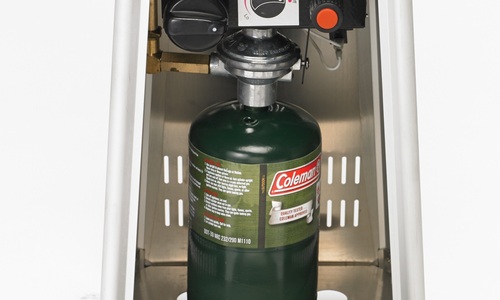Gas vs. Electric Heating
Approximately a 5-minute read |

When it comes to heating your home, the choice between gas and electric heating systems can make a big difference, especially in regions with harsh winters. Electric heaters tend to be more budget-friendly, straightforward to install, and don’t require the same level of ventilation that gas heaters do. On the flip side, gas heaters and heating systems generally come with lower operational costs because natural gas tends to be cheaper than electricity. They also excel at warming larger spaces effectively. Both types of heating systems are widely used around the globe and offer unique advantages depending on your needs and circumstances.
Heating Systems Explained
Electric heaters come in two main types:
Radiant heaters - These heaters feature a heating element encased in a glass envelope that generates heat via infrared radiation. A reflective surface redirects the heat away from the heater, allowing the radiant heat to travel through the air until it reaches an object or person. Radiant heaters, often called infrared heaters, are ideal for spot heating. You can find an example of this type of heater here.
Convection heaters – These systems warm the air close to them through convection. As the air heats up, it rises, and cooler air moves in to replace it, restarting the heating cycle. Convection heaters provide consistent warmth and work best in enclosed spaces.
Two popular types of convection heaters include ceramic and oil-filled heaters.
Types of Gas Heaters
Gas heaters fall into two categories:
Flued heaters – These are permanent installations that typically require professional installation at the correct height to ensure all emitted gases are properly extracted.
Non-flued heaters – Also known as vent-free or flueless heaters, these can be used in a room as long as there’s adequate ventilation. However, they should never be used in bedrooms or confined spaces without proper airflow.
Installation
Installing a gas heater or furnace involves more complexity due to the need for ventilation to remove emissions produced during combustion. This process usually involves setting up air ducts and vents throughout the house, making it a task best handled by professionals. Additionally, gas heaters are bulkier and require more space than electric options. On the other hand, electric heaters are portable, so no installation is needed. Wall-mounted electric heaters might require some installation, but the process is simpler and often doesn’t require professional assistance.
Cost
The upfront cost of installing a gas heater is typically higher than that of electric heaters due to the need for a centralized furnace and flue outlets. Electric heaters, being simpler and more compact, are generally more cost-effective to install.
Operating Cost
Gas heaters are more efficient at producing heat compared to their electric counterparts. Since natural gas is usually cheaper than electricity, gas heaters often have lower operating costs. Electric space heaters are most economical when used to heat smaller areas at lower temperature settings.
Safety Hazards
Infrared heaters primarily heat objects and should be placed in areas where ignition isn’t a concern. Most gas heaters require proper ventilation and should be turned off before sleeping to prevent carbon monoxide buildup. Always ensure your gas heater is installed correctly and maintained regularly to avoid safety risks.
Pro Tip: Heating systems can dry out indoor air, potentially exacerbating conditions like dry skin or eczema. Using a humidifier can help maintain healthier indoor humidity levels.
Popularity
The popularity of gas versus electric heating depends largely on geographic location. In colder climates like the Northeast, gas heating dominates due to its efficiency and lower operating costs. In warmer or milder regions, electric heating might be the preferred option since less heat is required overall.
Gas vs. Electric Heaters
If you’re considering purchasing a personal heating system, radiant heaters are a solid choice. Gas heaters take longer to heat up but are excellent for generating warmth over extended periods and across larger spaces. Radiant heaters are perfect for personal or room heating because they emit a focused beam of heat that warms people and objects quickly. Despite their limitations, both convection and radiant heating are more effective when used in personal space heaters rather than large-scale household systems. Convection furnaces and radiant heating panels are great for heating entire homes, but they come with higher costs. Smaller space heaters consume less energy to warm individual rooms, ultimately saving you money in the long run.
Suitability
Gas heating is more suitable for larger households because it heats spaces faster than electric heaters. Electric heating may be the only viable option if there's no existing chimney or vent available for gas exhaust.
Have questions or need more information? Contact us today, and we’ll be happy to assist you!
Foshan Yajieyuan Technology Co., Ltd , http://www.yjymiclean.com